Colonel Tom Price
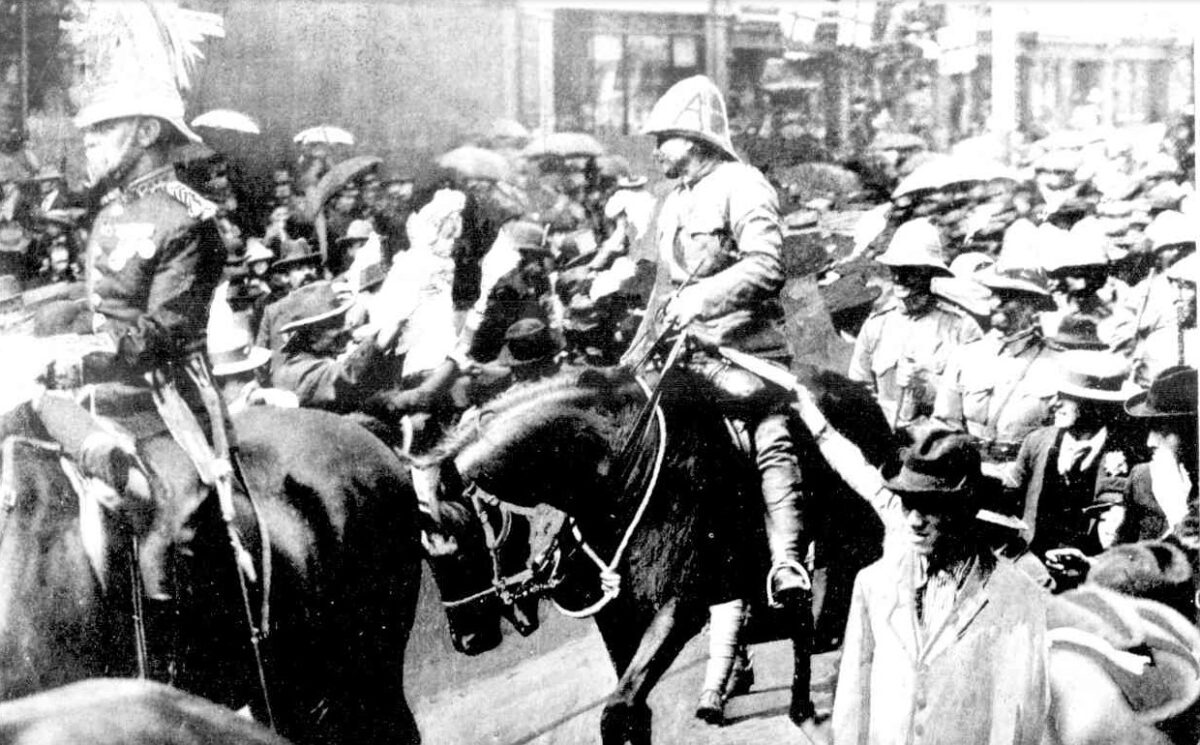
Waler Data Base @ Facebook. Image: Tom and his men came home to giant crowds turned out to welcome them, Weekly Times, 15th December 1900
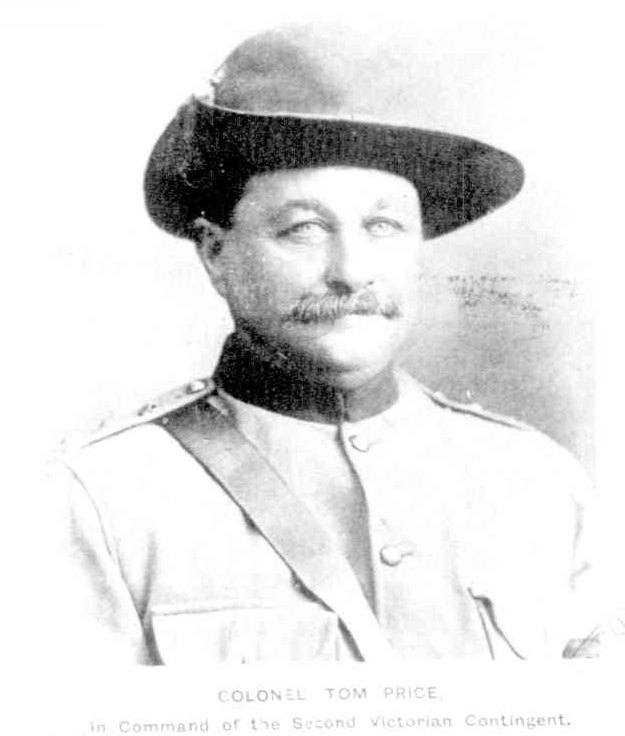
Colonel Tom Price C.B. An officer and a gentleman with a no-nonsense attitude – an important part of Australia identifying as a country, capable of commanding armies and of honour and courage on the field. Ironically, it was the Boer War for all its faults, then Federation, then WW1 which cemented us identifying as Australians rather than as British subjects, capable of leadership.
Image: Colonel Tom Price. 11th January 1900. Melbourne Punch. This photo was reprinted in many papers and journals, and was taken by Johnstone O’Shannessey.
Colonel Tom Price C.B. An officer and a gentleman with a no-nonsense attitude – an important part of Australia identifying as a country, capable of commanding armies and of honour and courage on the field. Ironically, it was the Boer War for all its faults, then Federation, then WW1 which cemented us identifying as Australians rather than as British subjects, capable of leadership.
Tom (Thomas Caradoc Rose Price) was the son of John Giles Price – detested by some with convict ancestry. John Price was murdered by convicts in 1857 in Victoria. Tom was fourteen and a half years old, and walked behind his father’s coffin to the cemetery.
Tom was born in Van Diemen’s Land in 1842 when his father was stationed there. From age four the family were on Norfolk Island for six years, where his father was stationed. Tom followed a military career as did his brother John (known as Fred) who remained in India all his life, after going there for a military job. The “Rose” in the family name, continued for generations, was after Sir Rose Price of Cornwall, Tom’s grandfather.
He travelled to England and trained at the East India Military College, Addiscombe, England. In 1861 he began service in India with the Madras Infantry. 1873 made Captain. 1874 he visited Melbourne, regarding Australia as home. Back to India, some changes of regiments, and military experience in India and Burma, by 1883 being Lieutenant-Colonel.
Image: Weekly Times, 20th January 1900
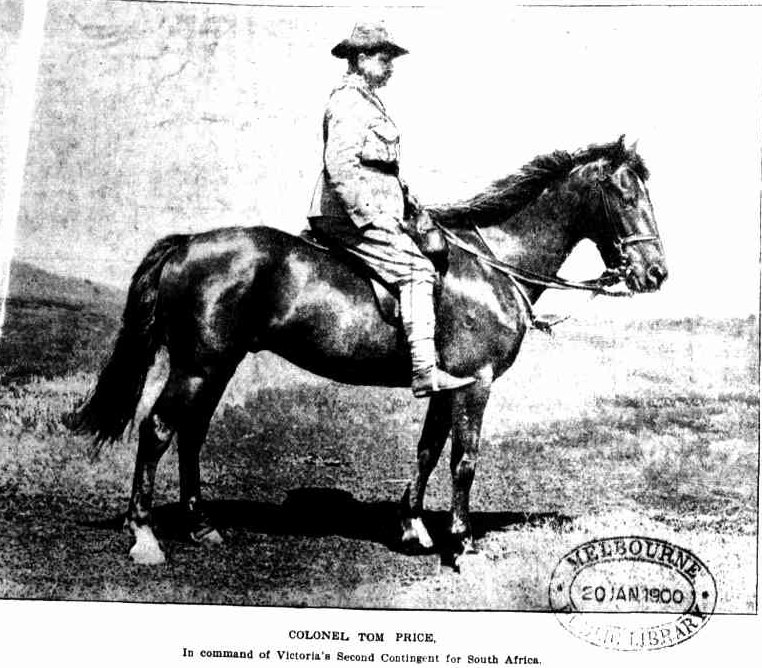
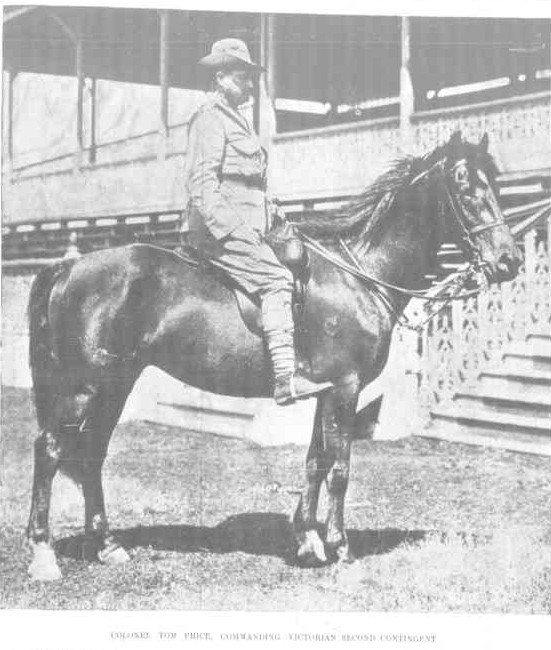

Images: Australasian, 20th January 1900; Colonel Tom Price of the Victorian Mounted Rifles mounted on his charger, probably outside Victoria Barracks. C. 1890 AWM
He moved back to Australia to farm near Heidelberg in 1883. However was asked to help with several military matters so farming was forsaken. He was very forthright, and cleaned up an ordnance scandal in no time, officers out ranking him had no effect on his honesty. Soon he was full time in military matters – put in charge of establishing the Permanent Military Forces for Victoria.
In 1885, Tom invented a felt hat for the army which turned up at the right side – so when turning their heads to salute while marching past officers, men could see them clearly. Needless to say, the army slouch hat has become an icon.
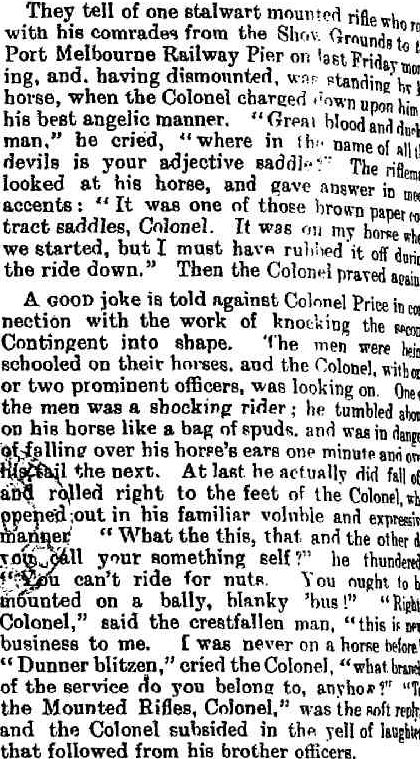
Image: Melbourne Punch 18th January 1900 (one of many tales about Tom Price, liberally studded with adjectives and always humorous)
Known for a colourful turn of phrase, Tom didn’t care a fig where a man came from nor his name, it was the person himself that mattered. He was refused command of Victoria’s first contingent to the Boer War on the grounds he was too senior for the small force but permitted to go with the Second Contingent.
His Victorian Mounted Rifles included the sudden inclusion of infantry. TTom had 10 days to train a number of infantry to be mounted soldiers, he did the job magnificently, but in his usual style, with fluent cursing, while saying he was lucky he had such good men.
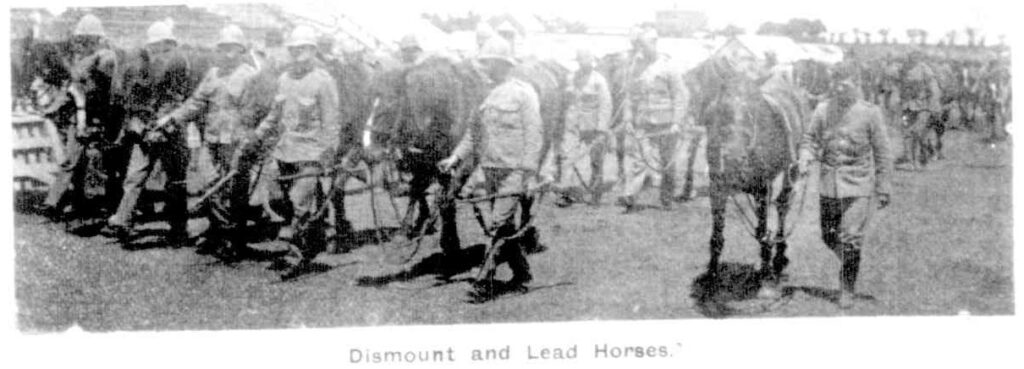
During the Boer War where he served 9 months including much action, he forbad his men from raping, looting, assaulting prisoners, and other dishonourable actions. They were strictly disciplined. He led with great courage. His men respected and loved him dearly. They showed immense courage, men rushing to recue their comrades unhorsed or wounded, and taking them to safety – Tom wrote to several parents praising their son’s courage. Tom was fortunate that he did not lose a single man there. When the offer to return home came, he and most of his men took it. Soon after arrival, Tom took to a sickbed for two weeks. Up and back to work, organising the formal celebrations for Federation in 1901. Continued his military work in Australia, stationed in Victoria and Queensland.
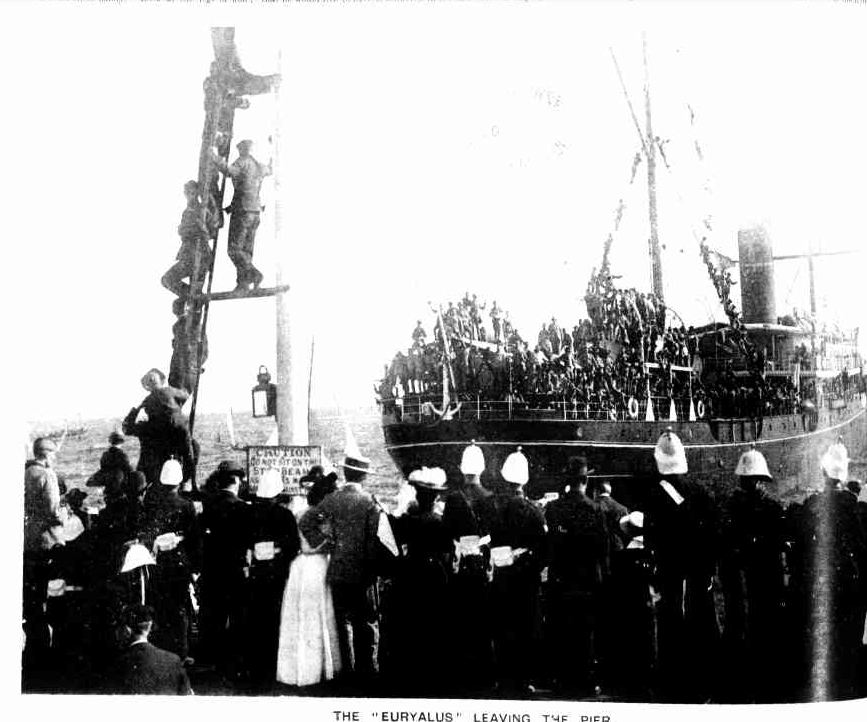
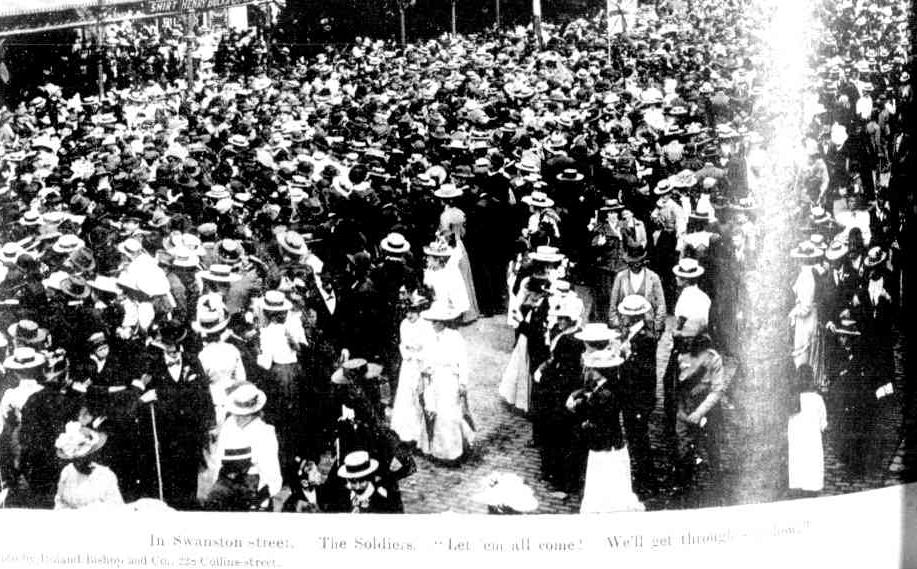
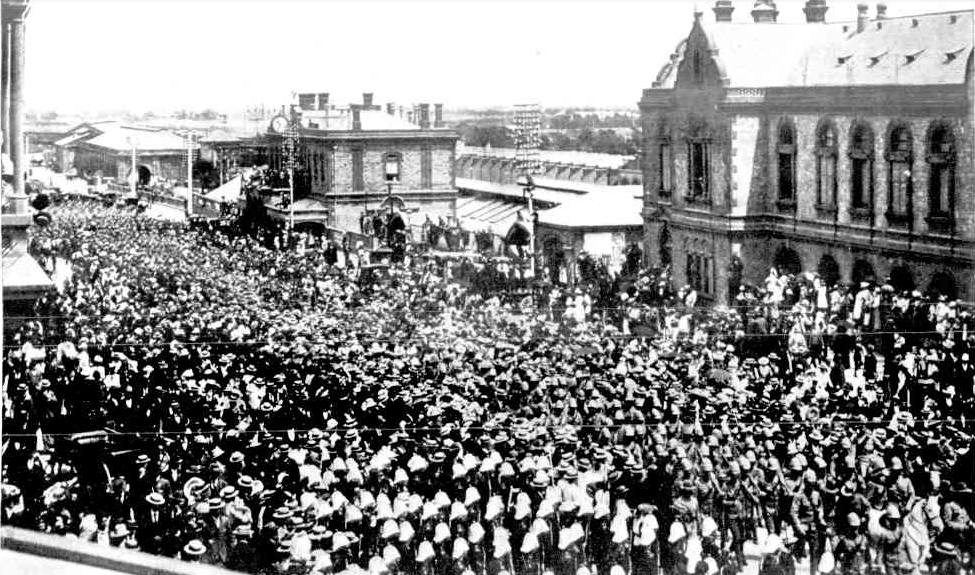
Images: Melbourne Punch, 18th January 1900, They left on a small ship, and returned on a smaller ship as their horses were left behind, but morale remained high as Colonel Tom Price was a disciplined and fair officer; Punch, 6th December 1900, “Let ’em all come, we’ll get through.” As Price and men arrived home, their march was slowed by crowds who proved too much for the mounted police. Nonetheless, slowed and mobbed, they got through; Australasian 8th December 1900, part of the giant crowds gathered to welcome Tom Price and his men home. Highly respected, blunt, and having not lost a man, he was much loved.
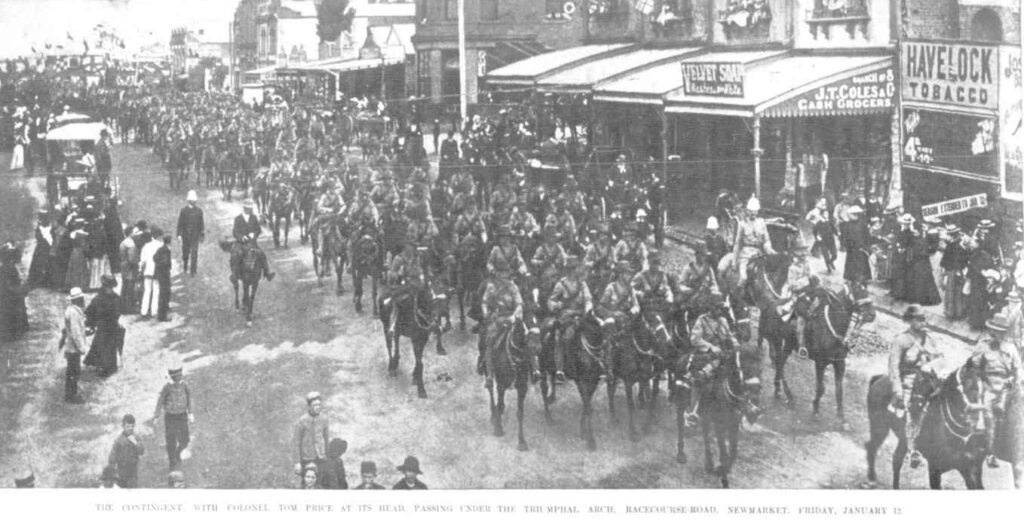
Image: Colonel Tom Price at the head of the 2nd Victorian Contingent, Racecourse Road, Newmarket.
Australasian 20th January 1900
Tom accepted the donation of a piano to his troops when leaving Australia, a bold move. However it proved great for morale. This photo is the men singing to “The Absent Minded Beggar” on their way home on the little ship Harlech Castle – conditions were very crowded, but no drop in morale happened at all. The piano was used on the trip to Africa, then stored at Cape Town after they left there for the field, and brought back into use as they arrived back in Cape Town, then came with them back here. Not one person on board knew the Colonel was ill. He’d been wounded onthe night march to attack Colensberg, this affected him for the rest of his life.
Image: The Australasian, 8th December 1900.
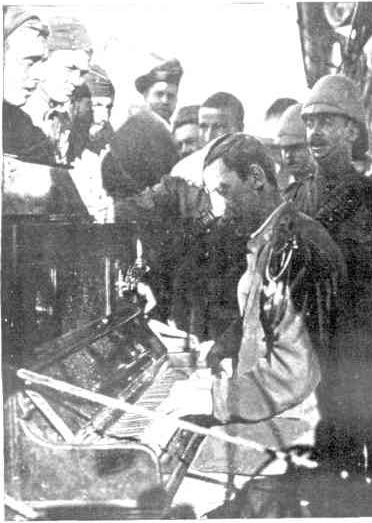
In 1904 Tom retired and asked the government for a military pension. It was refused. The press, like bloodhounds, said it was because he ordered the shooting of workers in an 1890 strike. Rubbish. He was sent with his men to control a strike. When confronted with angry workers, Price order his men to fire low to injure legs only, to stop them, if the need came – it didn’t. The strike was controlled peacefully. Finally, in December 1905, he was granted a pension.
He continued helping in military matter until he died in 1911, aged 68, of “dropsy.” He married and had four children, a daughter and three sons. One son was killed in WW1.
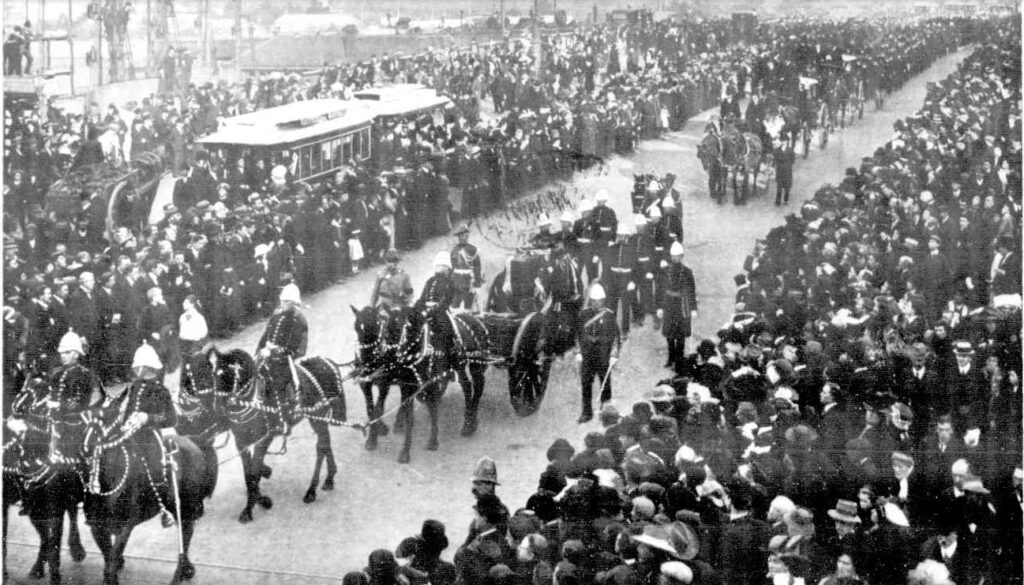
Australasian, 8th July 1911
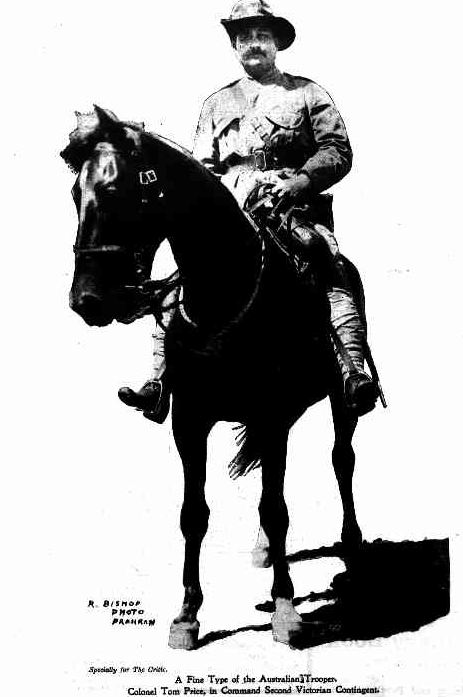
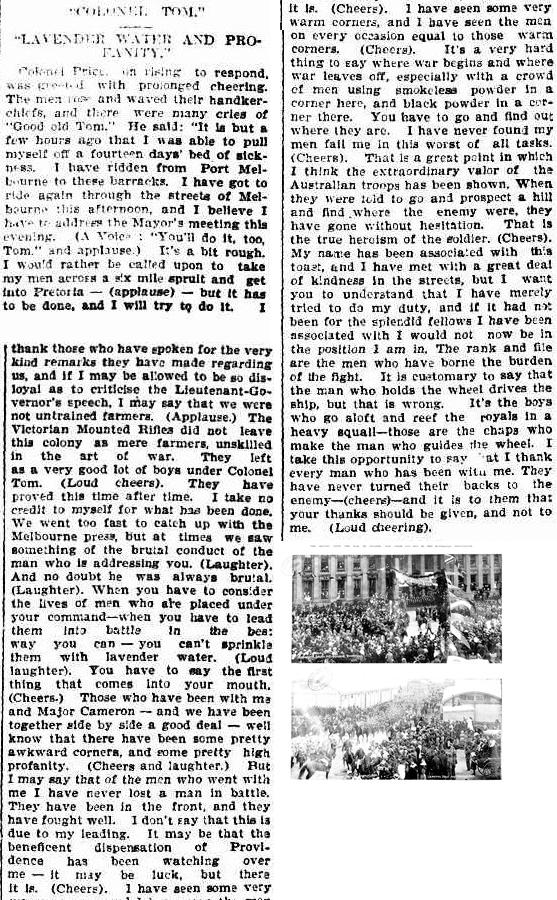
Images: Critic, 3rd February 1900; Weekly Times 8 December 1900